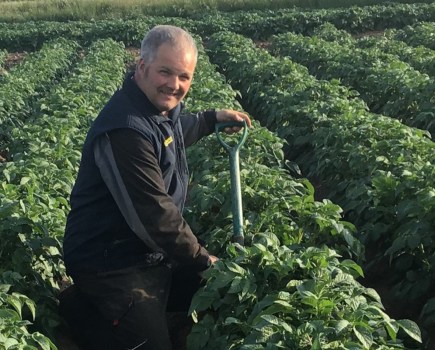By Martin Lines
The past few months have exposed significant gaps in knowledge about farming, food production, and profitability among policymakers and the wider public. It’s become clear that the challenges facing agriculture can’t be tackled by focusing solely on knowledge-sharing within the farming industry. We must also engage with the new government and society at large to foster a deeper understanding of the realities of farming today.
For years farmers have opened their gates to the public, inviting schoolchildren and community groups onto farms. But have we truly shifted the narrative? The disconnect between farming and the public seems as strong as ever. It may be time to rethink how we communicate the positive messages of farming, especially for those who can’t visit due to distance, time, or transport limitations.
Rather than waiting for people to come to us, perhaps we should take farming to them – not in protest, but in conversation. Imagine farmers visiting towns and cities to engage with schools, community groups, and urban residents. Many in urban areas, particularly Labour’s core supporters, have little exposure to the realities of farming. They may never have visited a farm or even experienced open countryside.
It’s easy to see why the public might struggle to reconcile the sight of a farmer standing in front of shiny machinery worth hundreds of thousands of pounds with the claim of financial difficulty. Similarly, the intricacies of growing crops – investing tens or hundreds of thousands of pounds with no certainty of yield, how the weather will play out, or what price the harvest will fetch – are difficult to grasp for those outside the industry.
For many, farming is simply the first step in a long food supply chain, far removed from the food on their plates.
Historically, the image of farmers has often been one of isolation – focused on producing food while telling others to stay off their land. But the time has come to change that narrative. We must welcome people onto farms where possible, helping them to see the care and dedication that goes into producing their food. And where farm visits aren’t feasible, farmers must head into towns and cities to help bridge the rural-urban divide.
Getting angry and cross with the public and politicians for not understanding farming issues won’t help to deliver the support or changes we require. Instead, we should focus on honest, accessible communication about the ways we produce food and manage landscapes for nature and climate.
On my own farm, I regularly host groups for walks and talks, explaining the costs, challenges, and returns of farming. I also visit schools, community groups, and urban settings to share our practices and experiences. The questions I receive reveal just how steep the learning curve can be for many, highlighting why it’s so important for us to reach out and engage.
Social media offers a powerful platform for farmers to tell their stories, but it’s a double-edged sword. While some share excellent content which educates and inspires, others inadvertently spread misinformation or use the platform for personal gain. When posting, we must ask ourselves: who’s the target audience? Does this help improve the perception of farming? Encouragingly, more farmers are sharing their stories through YouTube and social media, helping to better inform the public and politicians alike.
The divide between rural and urban communities appears to be widening fueled by misinformation and misunderstanding. With a government likely to be in power for the next four years, the importance of keeping the public and MPs on side can’t be overstated. Public financial support for agriculture hinges on their recognition of the public goods farmers provide – safeguarding nature, combating climate change, and producing healthy food.
Farming plays a crucial role in shaping the future of our landscapes and the food we all depend on. By stepping out of the fields and into urban spaces, we can help more people understand both the challenges we face and the contributions we make. Honest, open conversations are key – not just to keep farming sustainable, but to build a shared vision for a healthier, more resilient future.
This article was taken from the latest issue of CPM. For more articles like this, subscribe here.
Sign up for Crop Production Magazine’s FREE e-newsletter here.




